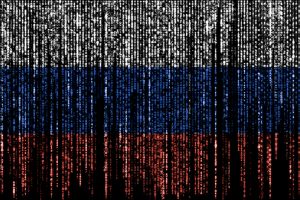Cybersecurity impact of the Russian-Ukraine conflict
The escalating Russian-Ukraine conflict has led to a significant global increase in cyberattacks. Forty-eight hours after the conflict started, US cybersecurity agencies reported an 800% increase in cybercrime. Moreover, a few months on, Russia is likely to launch large-scale cyberattacks against the West in response to accusations of war crimes and other sanctions. This article discusses the types of attacks businesses can expect and how to prepare for them.

Will private companies experience cyberattacks?
Geopolitical tensions typically give rise to state-sponsored crime groups that have the resources to launch large-scale attacks to destabilize the economy, gain financial benefit, or target critical IT infrastructure. Given that the private sector controls much of the economy in the Western world, private businesses could be targeted for theft, ransom, or shutting down essential services. You may also experience indirect attacks due to existing third-party software in your system. For instance, the crime group may breach payroll software and target all its customers. You could experience sensitive data theft and ransom requests just because you have a license for that particular payroll software!
What types of attacks can I expect?
While no one can predict the shape or form of the attack with total accuracy, we can make educated guesses by looking at past attacks in previous conflicts. Attacks to watch out for include:
- Distributed Denial of Service (DDoS) attacks bombard a business with a large volume of fake traffic, often causing the business to crash.
- Ransomware attacks lock you out of critical business applications and demand a heavy financial ransom to give back access
- Wiper malware attempts to erase the hard drives of computers it infects.
- Cryptojacking uses your computing resources to mine cryptocurrency, slowing down your systems and increasing your infrastructure expenses
- Phishing attacks send political messages with fake links that redirect the victim to fake donation pages that may also steal sensitive financial information.
How can I protect myself from these attacks?
Prevention is better than cure. Now is the time to lock down your network, scan and secure vulnerabilities, and train your employees to protect themselves from breaches. It may be time-consuming and resource intensive, but it is always better than dealing with the aftermath of an actual attack. Internationally, government guidelines suggest the following:
- Patch and update all critical business software
- Test your data backups and validate your recovery and continuity plans
- Plan a disaster response with assigned roles and responsibilities
- Scan your network and modify policies to shut down potential risk points.
- Train employees to build awareness of attacks they can expect.
Every organization, without exception, must act with extreme urgency to secure its information technology infrastructure. Consider contacting our cybersecurity professionals for risk management, assessment, and treatment services.
